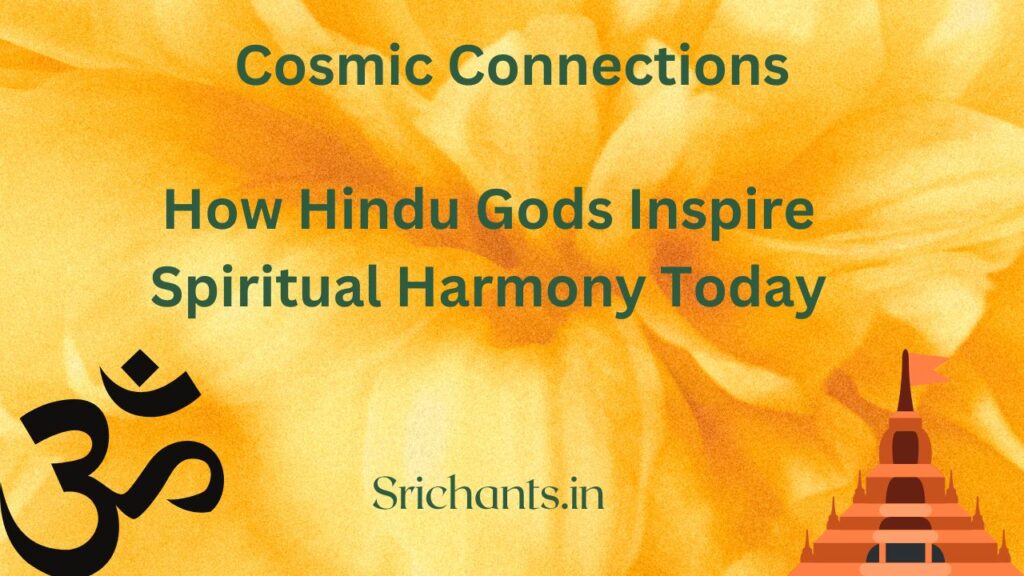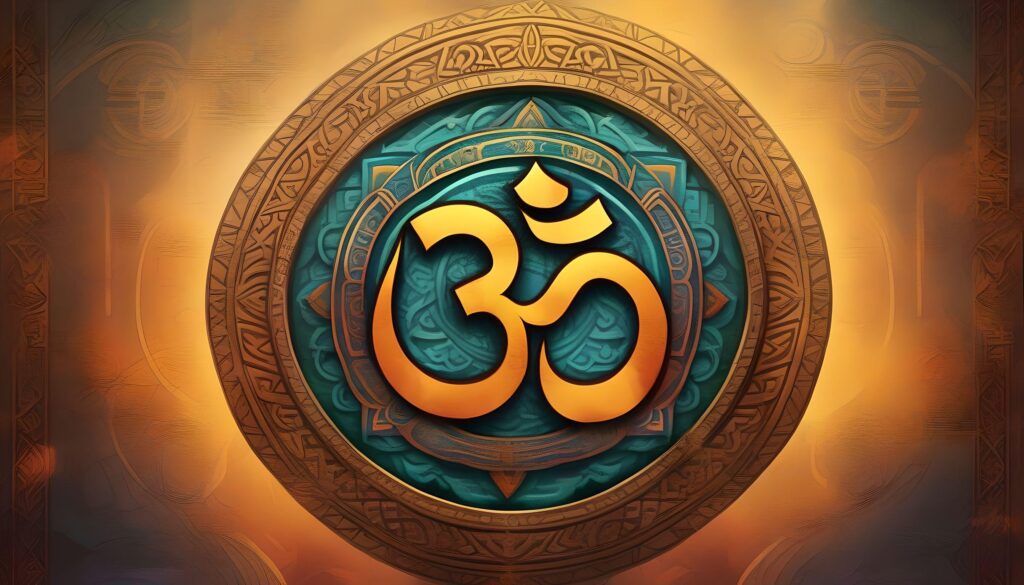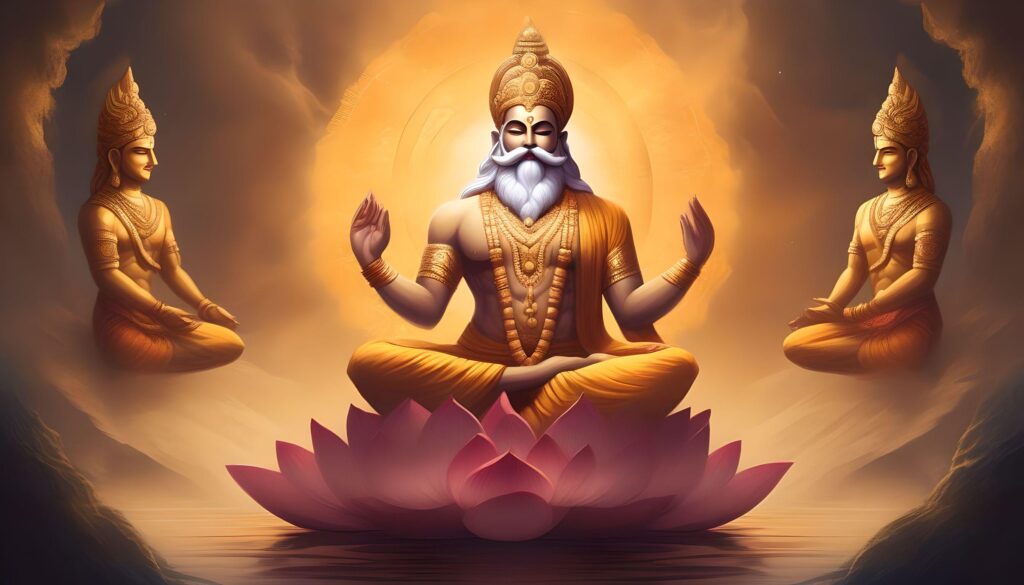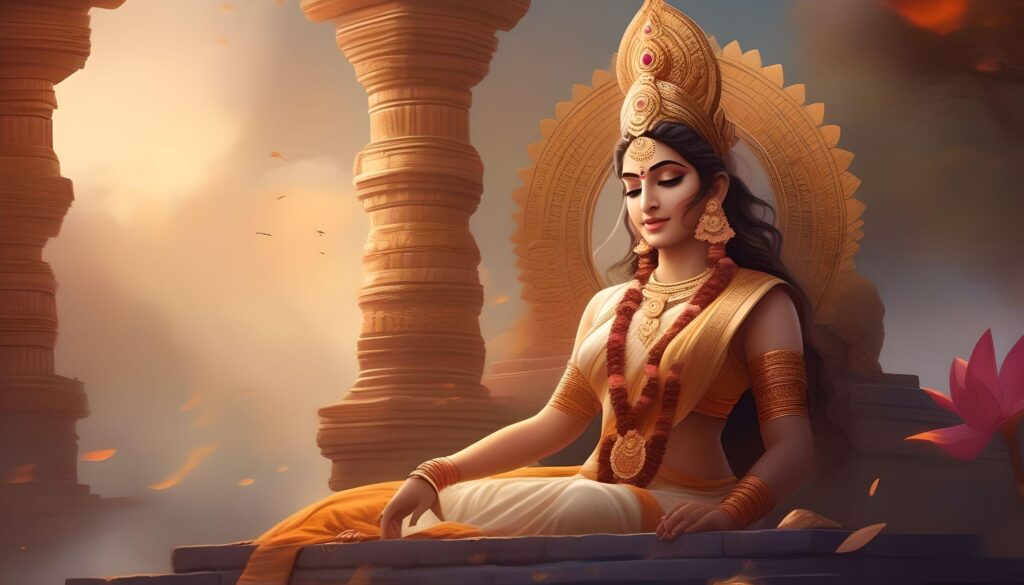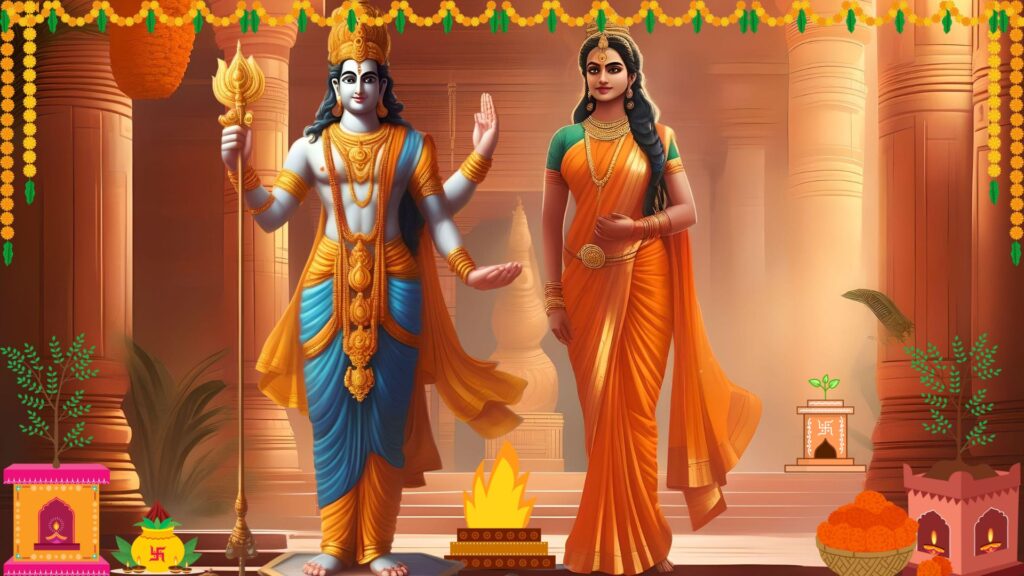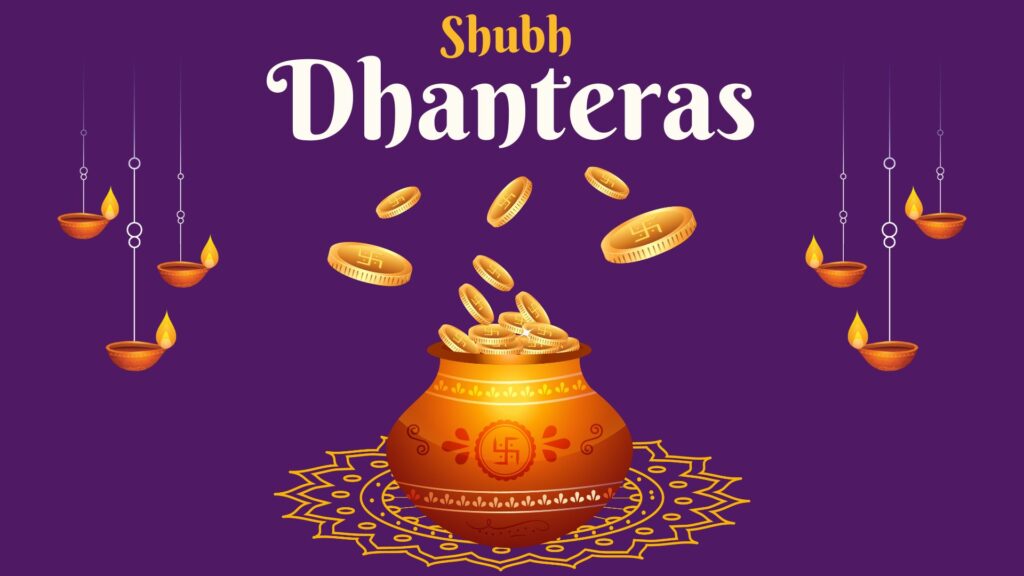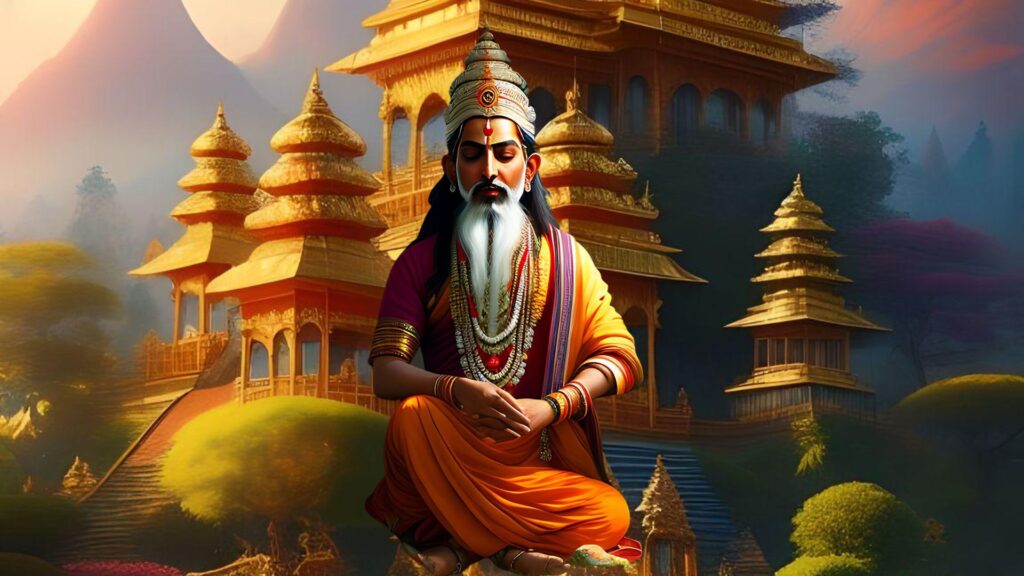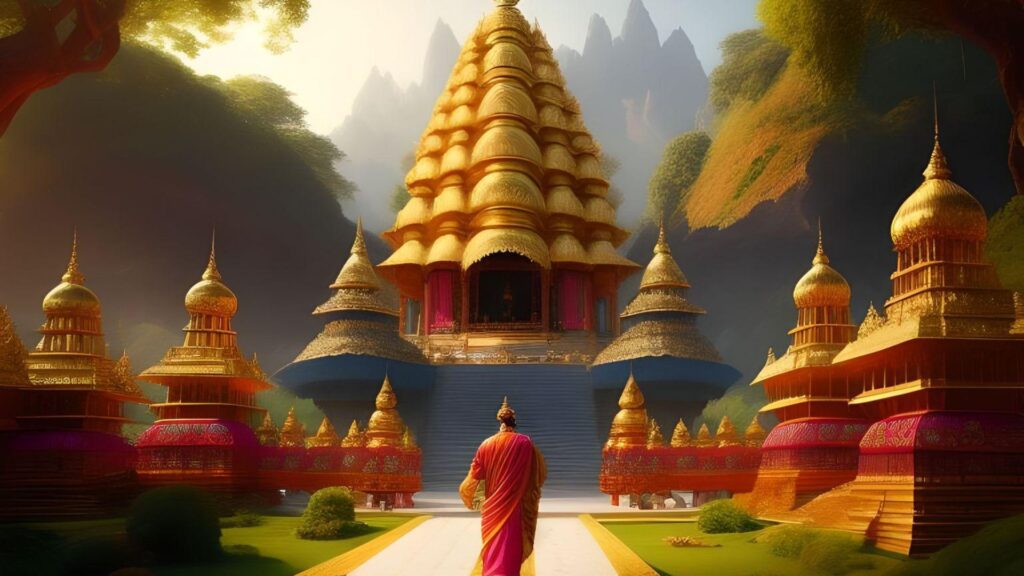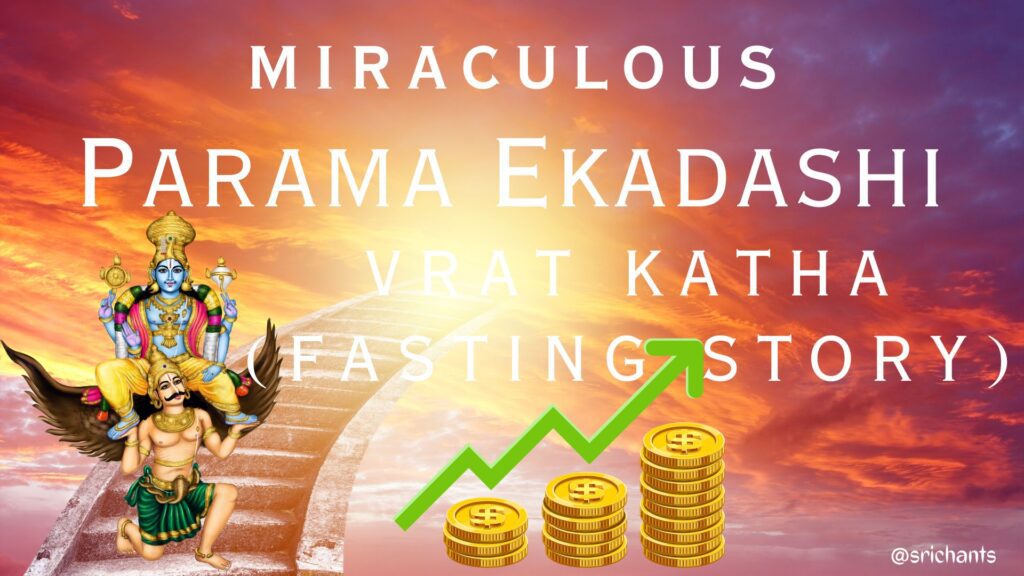Cosmic Connections: How Hindu Gods Inspire Spiritual Harmony Today
The ways in which Hindu deities promote spiritual harmony: In the vast framework of Hinduism, deities and goddesses hold a central role, embodying an array of divine qualities. Each divine being, from the all-powerful protector Kali to the colossal protector Brahma, holds a unique and significant place in the thoughts and emotions of millions. An endeavor shall be undertaken to explore the celestial domains, with a particular focus on the intricate facets of Hindu deities and spirits.
Table of Contents
- Introduction
- The Origins of Hinduism
- Hindu Beliefs and Philosophy
- The Hindu Trinity
- Vishnu: The Preserver
- Appearance and Symbolism
- Role and Importance in Hinduism
- Devotees and Worship
- Shiva: The Destroyer
- Appearance and Symbolism
- Role and Importance in Hinduism
- Worship and Festivals
- Brahma: The Creator
- Appearance and Symbolism
- Role and Importance in Hinduism
- Worship and Temples
- Other Significant Hindu Deities
- Kali: The Goddess of Death and Time
- Lakshmi: The Goddess of Prosperity and Beauty
- Saraswati: The Goddess of Knowledge and Arts
- Ganesha: The Remover of Obstacles
- Hanuman: The Symbol of Devotion and Strength
- Conclusion
- FAQ
Introduction
Hinduism, a religion with a long history, is comprised of a vast pantheon of celestial beings referred to as deities and gods. These celestial entities fulfill significant functions and symbolize a wide array of aspects of being and the spiritual. Each Hindu deity and divinity, including the creator Brahma, the destroyer Vishnu, and the preserver Vishnu, possesses unique characteristics and narratives. The significance, beliefs, and origins of these divine figures in the Hindu faith will be examined in this article.
The Origins of Hinduism
The Hindu religion originated on the Indian subcontinent at least 5,000 years ago. However, the exact origins and progression of this religion continue to be shrouded in mystery. Hinduism, as opposed to several Western religions, does not attribute the existence of a progenitor or prophet. Conversely, its followers consider it to be a lifestyle.
Hindu Beliefs and Philosophy
The core principle of Hinduism is the unwavering belief in Brahman, which is regarded as the supreme and formless universal soul. Brahman, being the quintessence of reality and veracity, is analogous to the entirety of the universe and every constituent therein. Furthermore, the Hindu faith espouses the tenets of dharma (righteousness), karma (action), the afterlife, and reincarnation. The ultimate objective is “moksha,” or liberation from the cycle of rebirth.
The Hindu Trinity
The Hindu Trinity, alternatively known as the Trimurti, is composed of three primary deities: Brahma, Vishnu, and Shiva. Initially esteemed as an individual entity representing the Supreme Being, they later embraced a unique sense of individuality. Brahma is the creator and Vishnu is the preserver, whereas Shiva is the destructor.
Vishnu: The Preserver
Regarded as the guardian of the cosmos, Vishnu is considered one of the sacred Hindu deities. By virtue of his personification of morality and justice, Lord Vishnu upholds the world and its regulations. Devotees engage in the practice of soliciting protection, fortitude, wisdom, and prosperity through the invocation of Vishnu.
Appearance and Symbolism
In conventional artistic depictions, Vishnu is personified as a humanoid entity possessing four appendages, each of which carries a unique object that serves as a symbol of his qualities and capacities. His countenance is often characterized by a serene demeanor and the presence of a headdress perched above his head.
Role and Importance in Hinduism
Vishnu, who manifests in a multiplicity of avatars with the intention of restoring moral rectitude and equilibrium on earth, assumes a central role in Hindu mythology. His significant incarnations have included Narasimha, Rama, and Krishna. Devotees venerate Vishnu with great fervor, guided by the conviction that he grants them immortality.
Devotees and Worship
Devotional observances at Vishnu temples consist of rituals, petitions, and offerings. Moreover, festivities such as Diwali and Holi occur as a means of honoring Vishnu and his various manifestations. Devotees engage in the recitation of hymns and mantras, among which the “Om Namo Narayanaya” is highly regarded for its purported capacity to elicit the bounties of Vishnu.
Shiva: The Destroyer
Shiva, denoted as Mahadeva or the Great God, fulfills dual roles as a guardian and a scourge within the Hindu faith. His formidable destructive power, which enables the emergence of new opportunities and transformations, earns him widespread veneration. Shiva and Parvati, who are also known by the names Shakti and Ganesha and Skanda, are the progenitors of their two sons.
Appearance and Symbolism
In his usual depiction, Shiva assumes the form of a humanoid, ornamented with a third eye atop his cranium. The frequent portrayals of him with a blue countenance and throat serve as symbolic representations of his deep spiritual ties and malevolent disposition. In addition, his abilities are symbolized by Shiva’s trident, cobra necklace, and ash-covered form.
Role and Importance in Hinduism
Shiva, as the preeminent deity representing both genesis and extinction, holds tremendous significance in the domain of Hindu mythology. He upholds associations with numerous esoteric traditions, such as asceticism, yoga, and meditation. Motivating individuals to overcome obstacles, achieve goals, and attain interior serenity, his adherents seek him out.
Worship and Festivals
Devotees venerate Shiva in both domestic and temple settings by presenting holy texts, blossoms, and milk. In Shiva worship, the recitation of mantras, particularly the potent “Om Namah Shivaya,” is an essential component. Dedicated to Lord Shiva, the festival of Maha Shivaratri is enthusiastically observed by his devotees.
Brahma: The Creator
Shiva is the destroyer, while Brahma is the creator and Vishnu is the preserver. Vishnu, one of the holiest deities in Hinduism, is revered as the universe’s protector.
Appearance and Symbolism
Brahma is often depicted with four heads and four limbs, which serve as symbols of his tremendous intelligence and inventiveness. In common representation, he assumes the form of a bearded humanoid positioned atop a lotus blossom.
Role and Importance in Hinduism
As time has progressed, Brahma’s status as the originator of the universe has diminished, given that Vishnu has taken on the responsibility of protecting and Shiva has come to symbolize destruction. In consequence, India is home to a mere two temples that are recognized for their devotion to Brahma. Nevertheless, his importance in Hindu mythology as the primordial creator remains unaltered.
Worship and Temples
Devotees frequently invoke Brahma alongside Vishnu and Shiva, thereby showcasing their cognizance of the interconnectedness among the Hindu deities. Brahma temples are frequented by pilgrims from Pushkar, Rajasthan, and Thirunavaya, Kerala, with the intention of attaining spiritual enlightenment and receiving blessings.
Other Significant Hindu Deities
A multitude of celestial beings, such as the Hindu Trinity, are held in high regard within the Hindu faith. Prominent instances encompass the following:
Kali: The Goddess of Death and Time
Kali, a formidable deity, is intricately associated with the notions of time, mortality, and the eradication of the ego. Despite her considerable physical strength, she is considered a nurturing maternal figure. The ephemeral nature of the corporeal body and the transcendent quality of the psyche are both represented by Kali.
Lakshmi: The Goddess of Prosperity and Beauty
Lakshmi is the divine being corresponding to prosperity, chastity, and abundance. She is highly regarded for bestowing good fortune and prosperity in her capacity as the consort of Vishnu. Lakshmi is often symbolized with four palms, which symbolize the four extremities of human existence.
Saraswati: The Goddess of Knowledge and Arts
Saraswati is the deity whose image is linked to learning, the arts, and wisdom. She has ties to an organization that promotes awareness and unrestricted dissemination of information. In the context of education, the four hands that represent Saraswati represent distinct facets of the human personality.
Ganesha: The Remover of Obstacles
Ganesha, the divine being adorned with an elephant’s head, is held in the highest regard for her ability to remove obstacles and bestow success and wisdom. Sacred initiations and momentous endeavors necessitate the veneration of him to ensure smooth advancement and the removal of any obstacles.
Hanuman: The Symbol of Devotion and Strength
Hanuman, the formidable monkey deity, symbolizes unwavering allegiance, courage, and strength. The protagonist’s account from the epic Ramayana inspires individuals to confront challenges and overcome obstacles. By invoking Hanuman, one can obtain physical strength and perseverance.
Krishna: The Divine Playmaker
The timeless and humorous anecdotes pertaining to Lord Krishna, which encompass his irreverent youth as well as the profound teachings encapsulated in the Bhagavad Gita, continue to captivate and amuse. The allure of Krishna surpasses religious boundaries, captivating individuals with its transcendent quality.
Rama: The Ideal Man
The life of Lord Rama, as described in the Ramayana, serves as a moral compass for millions. Rama’s steadfast commitment to virtue and observance of dharma have rendered him a source of motivation for individuals aspiring to lead an ideal life.
Durga: The Invincible Warrior
The vibrant festival of Durga Puja is a celebration in honor of the supreme warrior deity Durga. The ten-armed, lion-mounted deity symbolizes the triumph of righteousness over malevolence. The festivities unite communities in exuberant jubilation.
Ayyappan: The God of Sabarimala
Ayyappan is held in exceptionally high esteem by devotees at the Sabarimala temple, where he is the principal focus of devotion. The pilgrimage to Sabarimala serves as a tangible manifestation of the deep devotion and commitment exhibited by devotees of Ayyappan.
Conclusion
The celestial bodies and deities venerated in Hinduism hold significant spiritual and global significance for millions of individuals. Each deity possesses unique qualities and conveys significant teachings; for instance, Vishnu represents preservation, while Shiva represents destruction. Devotees pay homage to these celestial beings during their spiritual endeavors with the expectation of obtaining their favor, counsel, and motivation.
In order to deepen their appreciation for the rich cultural and spiritual heritage of Hinduism, ardent practitioners of yoga may benefit from gaining an understanding of the deities’ narratives, symbolic import, and religious roles.
Frequently Asked Questions (FAQs)
- Are Hindu Gods and Goddesses worshipped equally?
- While different individuals may have personal preferences, all deities hold significance, and devotees often worship multiple gods based on their needs.
- What is the significance of avatars in Hinduism?
- Avatars represent the incarnations of gods, each serving a specific purpose to restore cosmic order and protect dharma.
- Do all Hindus celebrate the same festivals for each deity?
- No, different regions and communities may have unique festivals dedicated to specific gods or goddesses, adding to the cultural diversity of Hindu celebrations.
- Is there a hierarchy among Hindu Gods and Goddesses?
- Hinduism does not have a strict hierarchy, and the choice of deity for worship is often a personal preference based on individual needs and beliefs.
- How do devotees prepare for the Sabarimala pilgrimage?
- Devotees follow strict rituals, observe a 41-day fasting period, and undertake the challenging pilgrimage to Sabarimala as a demonstration of their devotion to Ayyappan.
